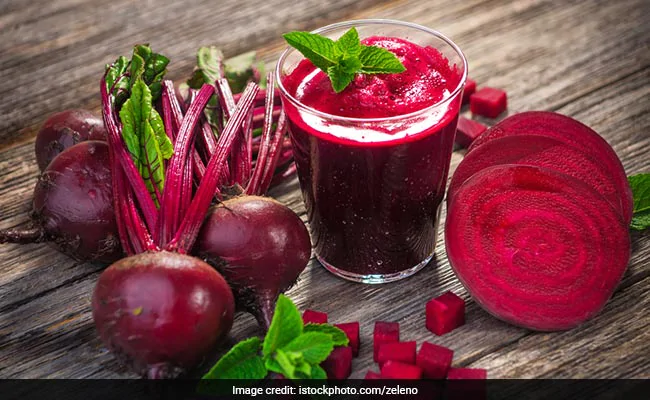Beetroot is a terrific way to extend your life. It’s a great source of many vitamins and minerals, and is packed with antioxidants that protect against disease.
It’s also heart-friendly due to its nitrate content, which helps reduce blood pressure by relaxing the blood vessels and promoting dilation. It also improves the delivery of oxygen to working skeletal muscles, which can help people maintain their physical activity and prevent heart disease.
It is a good source of nitrates
Beetroot is a nutrient-dense vegetable that is a good source of folate, potassium, vitamins A and C, and nitrates. Nitrates are compounds that help your body produce nitric oxide, which is an important molecule for blood vessel dilation and lowering blood pressure.
You can get nitrates from the beet root itself, but they are also found in beet greens and beetroot juice. Several studies have shown that people who eat beets on a regular basis are less likely to develop high blood pressure, which is a leading cause of death in the United States.
Dietary nitrate is converted into nitrite by bacteria in the mouth and stomach, which then raises nitric oxide levels in your body. This can increase vasodilation, which allows more blood to flow to the muscles during exercise. It can also improve your aerobic exercise performance by reducing the total cost of ATP and elevating muscular creatine phosphate, which are important for muscle strength.
In addition, nitrate can lower blood pressure by increasing the body’s ability to absorb oxygen, which is a major factor in heart disease and stroke. One study found that beet juice reduced blood pressure by as much as 2 points in patients with hypertension.
fildena 150 mg is can improve cognitive function by improving blood flow to the brain. This may help to prevent conditions such as dementia.
Beetroot juice can also boost exercise performance by boosting nitric oxide production, which causes your blood vessels to expand. It can also reduce your blood pressure, which can help to prevent cardiovascular disease.
However, it’s important to note that nitrates can be dangerous when ingested from meat, so it is best to choose foods with a low nitrate content such as vegetables and fruits.
A study found that people who drank beet juice for six days had better stamina during intense exercise. The nitrates in beet juice can also improve cognitive function by promoting blood flow to the frontal lobe of the brain, which is associated with higher level thinking such as decision making and working memory.
Although some people find the taste of beet juice unpleasant, it can help to lower your blood pressure and improve your exercise performance. You can drink it as a shake or in smoothies. It can also be cooked into chips, which is a convenient way to ingest nitrates.
It is a good source of iron
Beetroot is a good source of iron, which is an essential mineral that helps red blood cells carry oxygen throughout the body. Without iron, you can develop anemia.
In addition, beetroot is high in folic acid (vitamin B9), which can stimulate the production of red blood cells. It also contains antioxidants called betalains, which can help fight inflammation in the body.
Another important nutrient found in beetroot is nitrates, which have a hypotensive effect by helping to lower blood pressure. They are converted to nitric oxide inside the body, which widens blood vessels and dilates them. This improves circulation and reduces the risk of high blood pressure, heart disease, and stroke.
Nitrates are also beneficial for the gut microbiome, which is composed of bacteria that live in the intestines. They promote the growth of bacteria that are helpful for digestion, which can prevent constipation and bloating. They also increase dietary fibre intake and help to control blood sugar levels.
The nitrates in beetroot are also anti-inflammatory. They can help to reduce the inflammation in the body that occurs as a result of immune reactions, which can lead to cancer and other health problems. They can also help to reduce the oxidative stress that causes damage to cellular structures in the body.
One study showed that people with high blood pressure who consumed 250 ml of beetroot juice per day for four weeks experienced significant reductions in their blood pressure. This was achieved because nitrates lowered the amount of reactive oxygen species in the blood, which can cause inflammation and damage to cells.
Additionally, beetroot is a good source of potassium, which can help to balance blood sugar levels in the body and prevent conditions such as diabetes. It is also an excellent source of magnesium, which can help to regulate blood pressure and prevent heart disease.
The nitrates in beetroot can also help to improve digestion, which can help to prevent constipation and bloating. It is also an excellent source of calcium, which can help to maintain strong bones and teeth. However, you should keep in mind that beetroot has some oxalates, which are known as mineral thieves and can block the absorption of iron. Therefore, it is important to eat it with other foods that are rich in iron.
It is a good source of folate
Beetroot is a great source of folate. This vitamin is important for keeping your blood vessels healthy and preventing heart disease. It also promotes healthy digestion. Adding a serving of this vegetable to your diet each day can be a great way to improve your health.
A high-folate diet can lower your risk of developing cancer and other diseases. Foods that contain folate include fruits, vegetables, legumes and meats. In addition, foods fortified with folic acid, such as bread, cereals, cornmeal, pasta and rice, are an excellent way to boost your intake of this nutrient.
Eating a wide variety of fresh fruits, vegetables, grains, lean meats and other protein sources will ensure that you get the nutrients you need to stay healthy. A well-balanced diet can help to keep you at a healthy weight and prevent many common illnesses, such as diabetes, heart disease, stroke and some types of cancer.
Fruits and vegetables are an excellent source of fiber, which can promote a healthy gut and reduce the risk of constipation. They also provide nutrients such as calcium, phosphorus, zinc and potassium, which can be beneficial to your body.
In addition, fiber is a natural diuretic, which helps to control your blood sugar and weight. It can also increase your absorption of vitamins and minerals, such as iron.
Beetroot is rich in nitrates, which are metabolized to nitric oxide, a compound that is known to promote better cardiovascular health. Nitric oxide lowers blood pressure by relaxing and widening blood vessels, promoting a healthier heart.
Athletes are also likely to benefit from taking beetroot supplements in order to improve their performance during training or competition. Studies have shown that nitrates from beetroot can reduce exercise fatigue in various settings, including anaerobic cardiovascular exercise and endurance events.
In addition, it has been found that beetroot can enhance exercise performance by increasing the amount of oxygen absorbed by muscles and reducing the time spent exercising. It may also help to improve the body’s ability to use glucose, although research is limited at this point.
It is a good source of potassium
Potassium is an essential mineral that supports many important functions in the body, including the maintenance of healthy blood pressure and the normal functioning of the heart. It also promotes digestion and supports the immune system, among other benefits.
Getting enough potassium is crucial for the body, and consuming Beetroot can help you meet your recommended daily intake. A cup of cooked beets can provide 518 mg of potassium, about 14% of the RDI.
A diet low in potassium has been linked to a higher risk of high blood pressure and other cardiovascular problems. Adding more potassium-rich foods like Beetroot to your diet can help maintain proper blood pressure and reduce the risk of serious health conditions, such as strokes. Although you can take some medicine like fildena double to improve blood flow and relax blood vessels.
Beetroot juice can reduce systolic and diastolic blood pressure by promoting the production of nitric oxide in the body. Nitric oxide is a natural vasodilator and has several antihypertensive properties. This is because it works on the walls of arteries, relaxing them so that they are wider and more flexible.
This results in a more effective flow of blood to the heart and improved oxygenation for your muscles during exercise. This improves the efficiency of nutrient delivery, reducing the amount of lactic acid that accumulates and contributes to muscle fatigue.
Consuming beetroot in juice form or using a supplement with beetroot powder is an easy way to get your daily dose of this vital nutrient. However, people who have certain health conditions or take medications should speak with a doctor before trying beetroot in juice or a beetroot supplement.
One of the most important benefits of beetroot is that it can significantly increase your stamina and performance during exercise. It’s packed with nitrates, which are a nutrient that helps you recover faster after a workout and gives you an extra boost of energy when you need it most.
It also contains betalains, water-soluble antioxidants that have chemo-preventive abilities against some cancer cell lines. These antioxidants are believed to be free radical scavengers, helping to find and destroy unstable cells in the body.
Drinking 250 ml of beetroot juice daily can also lower your blood pressure and promote good heart health. This is because the nitrates in beetroot can increase the production of nitric oxide in your body. This increases blood flow to the brain and slows cognitive decline.

